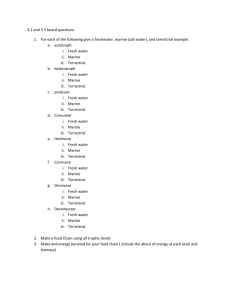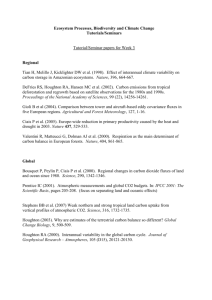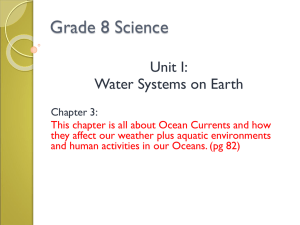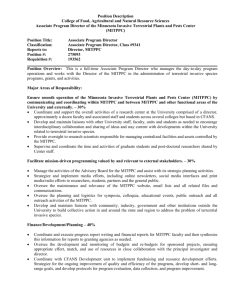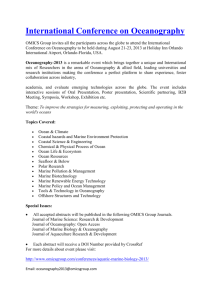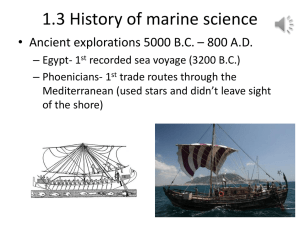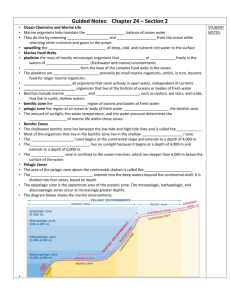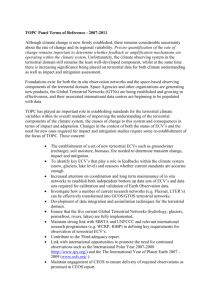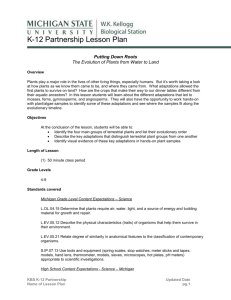Table S1. Environmental data sources
advertisement
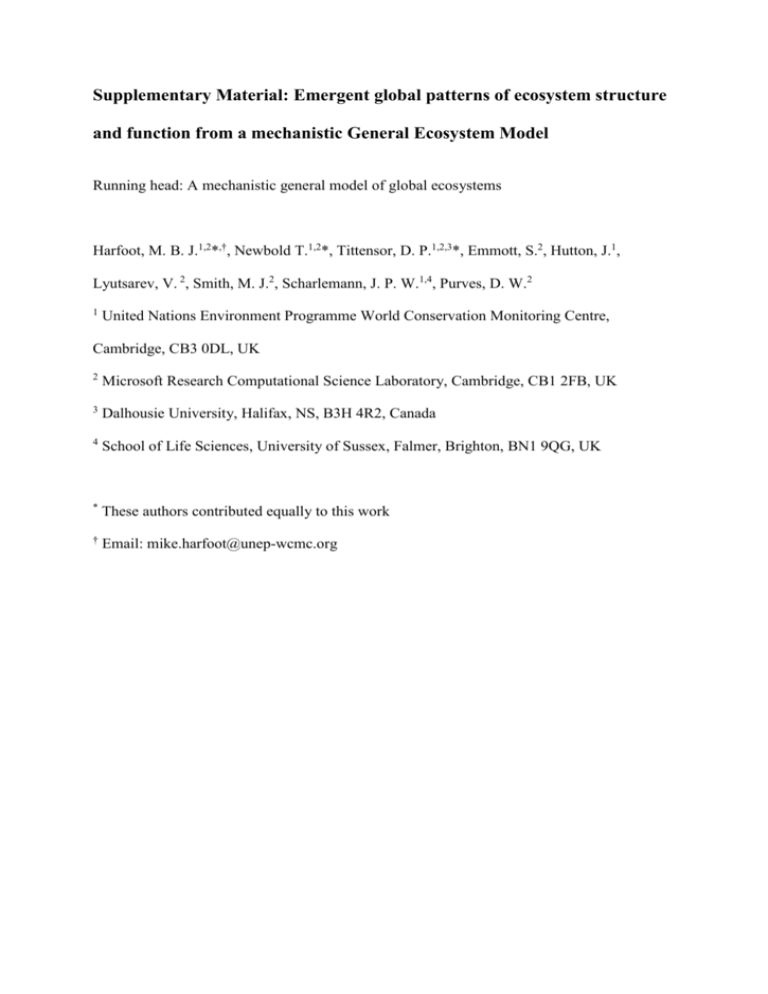
Supplementary Material: Emergent global patterns of ecosystem structure and function from a mechanistic General Ecosystem Model Running head: A mechanistic general model of global ecosystems Harfoot, M. B. J.1,2*,†, Newbold T.1,2*, Tittensor, D. P.1,2,3*, Emmott, S.2, Hutton, J.1, Lyutsarev, V. 2, Smith, M. J.2, Scharlemann, J. P. W.1,4, Purves, D. W.2 1 United Nations Environment Programme World Conservation Monitoring Centre, Cambridge, CB3 0DL, UK 2 Microsoft Research Computational Science Laboratory, Cambridge, CB1 2FB, UK 3 Dalhousie University, Halifax, NS, B3H 4R2, Canada 4 School of Life Sciences, University of Sussex, Falmer, Brighton, BN1 9QG, UK * These authors contributed equally to this work † Email: mike.harfoot@unep-wcmc.org Table S1. Environmental data sources Data layer Description Time period Time Source Units Model realm Used for [1,2] N/A Both Allocation of cell to step Land-sea mask Land-Sea Mask from NASA N/A N/A International Satellite Land realm Surface Climatology Project Near surface ocean Near surface ocean temperature temperature 1961-1990 Monthlya [3] °C Both In conjunction with land-sea mask for allocation of cells realm Near surface air Near surface air temperature 1961-1990 Monthlya [3] °C Both temperature Temperature dependent ecological processes Precipitation Precipitation 1961-1990 Monthlya [3] mm Terrestrial Modelling terrestrial primary productivity Available water Available soil water capacity 1960-2000 Constant [4] mm Terrestrial capacity Number of frost Modelling terrestrial primary productivity Number of frost days 1961-1990 Monthlya [3] Days Terrestrial days Modelling terrestrial primary productivity Terrestrial net MODIS derived net primary primary productivity 2005 Monthly [5] gC m-2 Terrestrial day-1 Seasonality of modelled NPP productivity Diurnal air Diurnal air temperature range temperature range over land 1961-1990 Monthlya [3] °C Terrestrial Calculating temperature limitation of ectotherm activity Sea surface Sea surface temperature 1958-2001 Monthlya [6] °C Marine temperature Temperature dependent ecological processes Ocean net primary Net primary productivity via productivity Vertically Generalized 2003-2011 Monthlya [7,8] gCm-2day-1 Marine Productivity of marine stocks Production Model Ocean current Meridional and latitudinal velocity current speeds (phytoplankton) 1958-2001 Monthlya [6] cm s-1 Marine Drives advective dispersal External global environmental data sources used within the model. Units represent those used within the Madingley model, not those of the original source data. a indicates environmental variables were long-term/multi-decadal average values. References 1. Meeson BW, Corprew FE, McManus JMP, Myers DM, Closs JW, et al. (1995) ISLSCP Initiative I -- Global Data Sets for Land-Atmosphere Models,1987-1988. Volumes 1Ð5. 2. Sellers PJ, Meeson BW, Closs J, Collatz J, Corprew F, et al. (1995) An Overview of the ISLSCP Initiative I -- Global Data Sets. On: ISLSCP Initiative I Global Data Sets for Land-Atmosphere Models, 1987-1988. Volumes 1-5. 3. Microsoft Research Cambridge Computational Science Laboratory (2012) FetchClimate. Available: http://fetchclimate.cloudapp.net/. Accessed 11 October 2012. 4. ISRIC-WISE (2012) Global data set of derived soil properties on a 0.5 by 0.5 degree grid (ver. 3.0). Available: http://www.isric.org/data/isric-wise-global-data-set-derivedsoil-properties-05-05-degree-grid-ver-30. Accessed 11 October 2012. 5. National Aeronautics and Space Administration (2012) NASA Earth Observations: Net Primary Productivity. Available: http://neo.sci.gsfc.nasa.gov/Search.html?group=53. Accessed 11 October 2012. 6. Carton JA, Giese BS (2008) A reanalysis of ocean climate using Simple Ocean Data Assimilation (SODA). Mon Weather Rev 136: 2999–3017. doi:10.1175/2007MWR1978.1. 7. Behrenfeld M, Falkowski P (1997) Photosynthetic rates derived from satellite-based chlorophyll concentration. Limnol Oceanogr 42: 1–20. 8. Rutgers Institute of Marine and Coastal Sciences (2004) Vertically Generalized Production Model Estimates of Global Primary Production. Available: http://marine.rutgers.edu/opp/Production/Production1.html. Accessed 11 October 2012.
